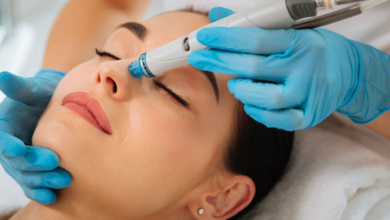Trends: Why Connecting with an AA Group Near Me is Vital

Alcohol addiction, or alcoholism, is a severe chronic disease that affects millions of people globally. It disrupts lives, causes health issues, and affects personal relationships. Recognizing the need for help and finding a AA Meeting Near Me can be a decisive step toward reclaiming one’s life from the debilitating effects of addiction.
The Importance of Community Support
Community support is crucial for anyone battling addiction. Engaging with local AA groups provides individuals with a network of understanding and accountability. Research has shown that such community support can significantly enhance the recovery process by offering practical advice, emotional support, and constant encouragement.
Popular Treatment Methods
Inpatient Rehabilitation
- Inpatient rehab involves staying at a facility full-time, away from everyday stress and temptations. This environment ensures 24/7 professional medical and psychological support, creating a nurturing space for individuals to focus solely on recovery.
Outpatient Programs
- Outpatient programs provide a more flexible alternative, allowing patients to continue their everyday obligations while attending therapy sessions. For those with moderate addiction levels, this approach is perfect since it provides essential support without completely upsetting their daily routines.
12-Step Programs
- Alcoholics Anonymous (AA) is synonymous with the 12-step program, emphasizing personal growth, spiritual development, and communal support. This framework provides a structured path to sobriety, fostering a shared sense of purpose and mutual encouragement.
Non-12-Step Programs
- For those seeking alternatives, non-12-step programs focus on personalized therapy and evidence-based treatments. These programs cater to individual needs, allowing a tailored approach without the religious or spiritual elements present in traditional 12-step modalities.
Holistic Approaches
- Holistic therapies place a strong emphasis on using techniques like yoga, meditation, and healthy eating to cure the mind, body, and soul. These methods focus on treating the underlying reasons of addiction, encouraging general well-being, and developing a balanced lifestyle.
Therapy and Counseling
Therapy and counseling are indispensable in treating alcohol addiction. Techniques like cognitive-behavioral therapy (CBT) help individuals identify and alter destructive behavior patterns. Therapy provides a safe space to discuss underlying issues contributing to addiction, such as mental health disorders or traumatic experiences, allowing for a more comprehensive recovery approach.
Personal Experiences and Success Stories
Personal testimonials offer powerful motivation for those embarking on recovery journeys. For instance, John credits his progress to the consistent support from his local AA group and regular counseling sessions. These real-life stories serve as beacons of hope, illustrating that recovery is possible, no matter how impossible the challenges may seem.
The Role of Technology in Modern Recovery
Technology has brought a new dimension to addiction recovery. Various apps and online support groups provide immediate access to resources and a supportive community. Digital platforms facilitate virtual meetings and progress tracking, making it easier for individuals to stay on course. The Mayo Clinic highlights how technology can significantly aid recovery, especially in today’s digital age.
Steps to Take for Someone Seeking Help
- Recognizing the Problem: Acceptance is the first step toward recovery.
- Finding a Support Group: Look for local AA meetings to join a community that understands the journey.
- Seeking Professional Help: Consult with healthcare providers for tailored treatment plans.
- Creating a Recovery Plan: Develop a personalized approach encompassing various treatment methods.
- Maintaining Sobriety: Continue utilizing support groups and therapy for long-term success.
Conclusion
Overcoming alcohol addiction is a challenging but achievable goal with the right support and resources. By understanding the role of community support, exploring effective treatment methods, and leveraging modern technology, individuals can navigate the path to sustained recovery. Seeking help is a courageous step, beginning a journey toward a healthier, more fulfilling life.



